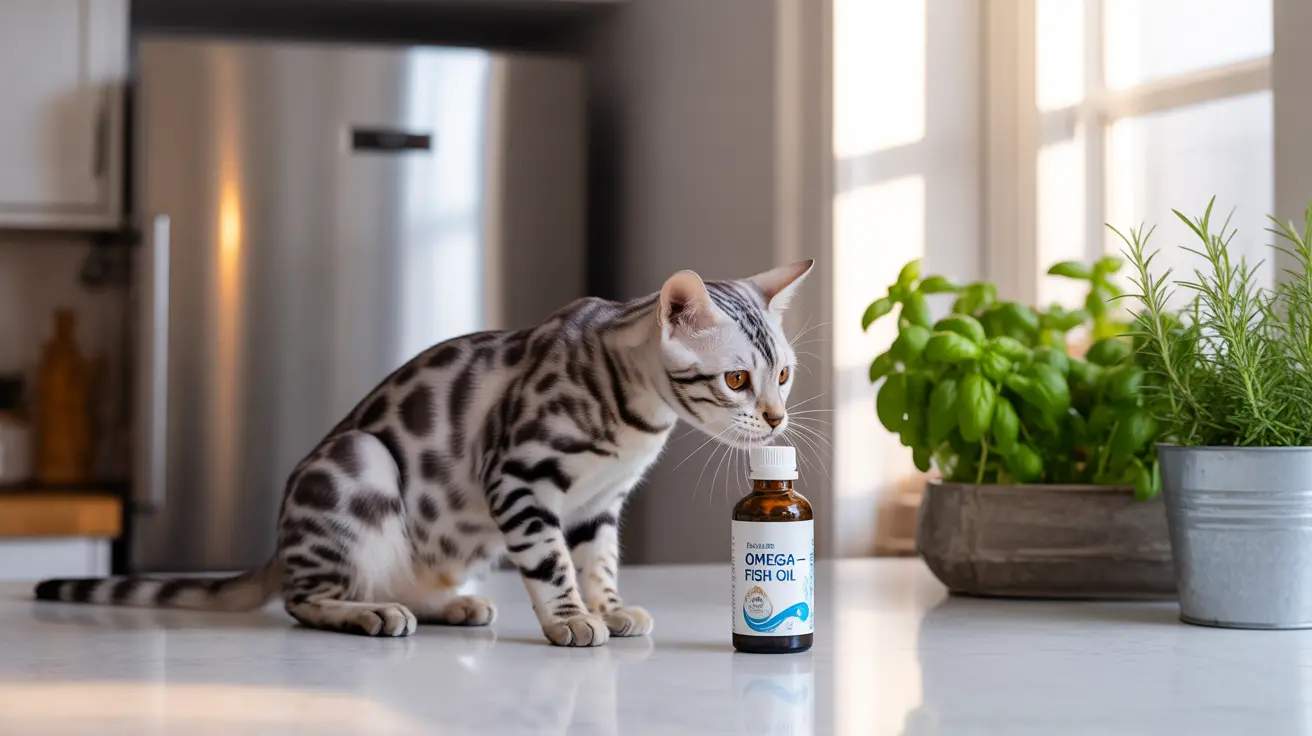Fish oil has become an increasingly popular supplement for cats, offering a range of potential health benefits thanks to its rich omega-3 fatty acid content. As more pet owners seek natural ways to support their feline companions' health, understanding the proper use and benefits of fish oil for cats has become essential.
In this comprehensive guide, we'll explore everything you need to know about fish oil supplementation for cats, from its numerous health advantages to proper dosing and potential risks. Whether you're considering adding fish oil to your cat's diet or looking to optimize their current supplementation, this article will provide you with expert-backed information to make informed decisions.
Understanding Fish Oil and Its Components
Fish oil primarily contains two crucial omega-3 fatty acids: eicosapentaenoic acid (EPA) and docosahexaenoic acid (DHA). Cats cannot efficiently produce these essential fatty acids on their own, making supplementation particularly valuable. These compounds play vital roles in various bodily functions, from reducing inflammation to supporting brain health.
Key Health Benefits of Fish Oil Supplementation
Skin and Coat Health
One of the most noticeable benefits of fish oil for cats is its positive impact on skin and coat health. The omega-3 fatty acids help reduce inflammation and allergic reactions, leading to less itching and a shinier, healthier coat. Many cats experience reduced shedding and improved skin condition within weeks of starting supplementation.
Joint and Mobility Support
Fish oil's anti-inflammatory properties make it particularly beneficial for cats with arthritis or joint issues. The EPA and DHA content helps reduce joint inflammation and pain, potentially improving mobility and quality of life for affected cats, especially senior felines.
Kidney Function
For cats with chronic kidney disease, fish oil can be particularly beneficial. Studies have shown that cats receiving fish oil supplementation may experience better kidney function and potentially longer survival times. The supplement helps reduce blood pressure and minimize protein loss through urine.
Safe Dosage and Administration
The recommended dosage of fish oil for cats typically ranges from 30-50 mg of omega-3 per kg of body weight daily. However, this amount may vary based on your cat's specific health needs and conditions. Some important guidelines include:
- Start with a lower dose and gradually increase it
- Always administer with food to reduce digestive upset
- Use veterinary-recommended products for proper dosing
- Monitor your cat's response to supplementation
Potential Risks and Side Effects
While fish oil is generally safe for cats, there are some potential side effects to be aware of:
- Digestive issues (nausea, diarrhea, or vomiting)
- Fishy breath or skin odor
- Increased shedding during initial supplementation
- Possible bleeding issues at high doses
- Risk of pancreatitis in sensitive cats
Choosing the Right Fish Oil Supplement
When selecting a fish oil supplement for your cat, consider these crucial factors:
- Quality and purity of the product
- Concentration of EPA and DHA
- Third-party testing certification
- Proper storage instructions
- Manufacturing reputation and standards
Frequently Asked Questions
What are the health benefits of giving fish oil supplements to cats?
Fish oil supplements provide numerous health benefits for cats, including improved skin and coat health, reduced inflammation, better joint mobility, enhanced kidney function, and potential cognitive support. The omega-3 fatty acids in fish oil also support heart health and may help manage various inflammatory conditions.
How do I safely dose fish oil for my cat to avoid side effects?
Start with the recommended dose of 30-50 mg of omega-3 per kg of body weight daily, given with food. Always follow veterinary guidance, start with a lower dose, and gradually increase it while monitoring your cat's response.
Can fish oil help improve my cat's skin and coat condition?
Yes, fish oil can significantly improve your cat's skin and coat health by reducing inflammation, alleviating allergic reactions, and providing essential fatty acids that promote healthy skin and fur growth.
Are there any risks or side effects of fish oil for cats I should watch for?
Common side effects include digestive upset, fishy breath, and increased shedding initially. More serious risks can include bleeding issues or pancreatitis in sensitive cats. Monitor your cat closely and contact your veterinarian if you notice any concerning symptoms.
Should I consult my veterinarian before starting fish oil supplements for my cat?
Yes, always consult your veterinarian before starting fish oil supplementation. They can assess your cat's specific health needs, recommend appropriate dosing, and monitor for potential interactions with other medications or health conditions.
Conclusion
Fish oil can be a valuable supplement for cats when used properly and under veterinary guidance. While it offers numerous potential health benefits, success lies in choosing the right product, following proper dosing guidelines, and monitoring your cat's response. Always prioritize your cat's individual needs and work closely with your veterinarian to ensure safe and effective supplementation.






